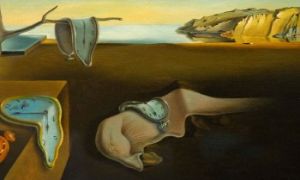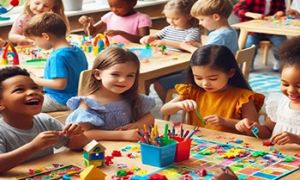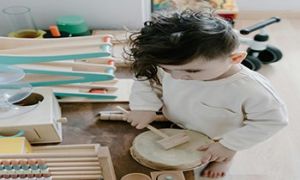The Australian Council for Educational Research (ACER), has developed a set of free resources that enables young children to understand science.
The series includes activities that educators can complete to develop young children’s science inquiry skills and monitor their science learning and for educators to incorporate the latest research into science learning and development into their teaching.
The resources include:
- Science in the early years: Concept cartoons as monitoring tools. Educator resource, Australian Council for Educational Research
- Science in the early years: Exploring mixtures. Educator resource, Australian Council for Educational Research
- Science in the early years: Floating and sinking. Educator resource, Australian Council for Educational Research
- Science in the early years: Light and shadows. Educator resource, Australian Council for Educational Research
- Science in the early years: Monitoring science understandings: Checklists for AC Foundation – Year 2, Australian Council for Educational Research
- Science in the early years: Monitoring science understandings. Checklists for EYLF outcomes, Australian Council for Educational Research
- Science in the early years: A plant treasure hunt. Educator resource, Australian Council for Educational Research
- Science in the early years. Paper 2: Science inquiry skills, Gayl O'Connor and Christine Rosicka
- Science in the early years. Paper 4: Educator facilitation, Gayl O'Connor and Christine Rosicka
- Science in the early years. Paper 1: Early years science and integration, Christine Rosicka and Gayl O'Connor
- Science in the early years. Paper 3: Monitoring children's learning
When introducing science in the early years, it encourages children to begin to make sense of the words around, gain an understanding of how things work and familiarise themselves with basic scientific vocabulary.
Reference:
Early Years Science, ACEResearch



 Open ended questions cannot be responded to with one word answers such as yes or no. These types of questions enables a child to provide
Open ended questions cannot be responded to with one word answers such as yes or no. These types of questions enables a child to provide During your child’s preschool years, an important milestone begins to emerge. This is the development of pre-writing skills. Pre-writing skills are used to encourage, develop
During your child’s preschool years, an important milestone begins to emerge. This is the development of pre-writing skills. Pre-writing skills are used to encourage, develop An Acknowledgment of the Country is a way of showing respect for the Traditional Owners and can be given by both non-Indigenous people and Aboriginal
An Acknowledgment of the Country is a way of showing respect for the Traditional Owners and can be given by both non-Indigenous people and Aboriginal Open ended materials enables children to play freely. They are objects that have no rules to follow, use or function. Raw materials that can be
Open ended materials enables children to play freely. They are objects that have no rules to follow, use or function. Raw materials that can be Language plays an important role in a child’s development. It enables a child to communicate effectively with their family, learn at school, socialize with friends,
Language plays an important role in a child’s development. It enables a child to communicate effectively with their family, learn at school, socialize with friends, Like adults, children have to deal with their own stress in life. Moving house, starting a new school, preparing for a new sibling - these are
Like adults, children have to deal with their own stress in life. Moving house, starting a new school, preparing for a new sibling - these are Playdough is such a versatile material. It provides numerous benefits to children as they manipulate it, it is safe and soothing and provides children with
Playdough is such a versatile material. It provides numerous benefits to children as they manipulate it, it is safe and soothing and provides children with Teaching children about sustainability enables them to appreciate and respect the natural environment. Early childhood services can provide meaningful hand on learning experiences in order
Teaching children about sustainability enables them to appreciate and respect the natural environment. Early childhood services can provide meaningful hand on learning experiences in order Recycling is an important concept that teaches children to care for the environment. It encourages children to be responsible and show a growing appreciating for
Recycling is an important concept that teaches children to care for the environment. It encourages children to be responsible and show a growing appreciating for Incursions provide children with the opportunity to explore meaningful learning experiences in the comfort of their early childhood service. The following provides a directory of
Incursions provide children with the opportunity to explore meaningful learning experiences in the comfort of their early childhood service. The following provides a directory of


